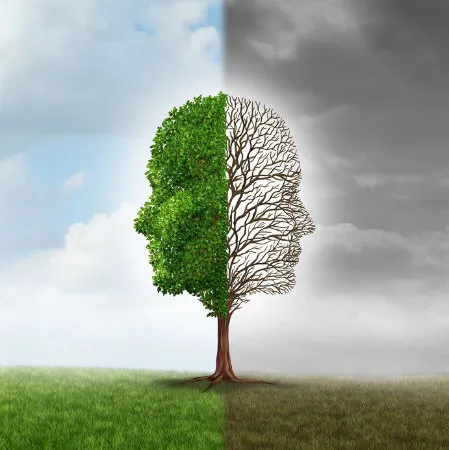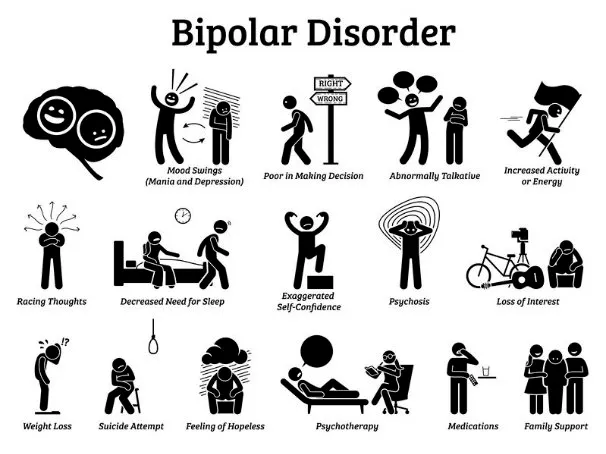Treatment Plans to Manage Bipolar Disorder in Adults

Bipolar disorder, sometimes called manic-depressive illness, causes a person to experience unusual changes in mood and energy levels. This disorder may present as depression, mania/hypomania or a mixture of both symptoms and can negatively impact one's ability to function normally.
Severe depression associated with Bipolar Disorder may also lead to suicidal thoughts. If you or a loved one struggles with mental health and has an emergency or feels suicidal, please call 911 or the National Suicide Hotline at 1-800-273-TALK (1-800-273-8255).
It is essential to get a proper diagnosis before beginning Bipolar Disorder treatment, as the symptoms can be easily overlooked or confused with another diagnosis. Our psychiatric specialists in Minneapolis will assess your symptoms and help you find the best treatment for bipolar disorder.
Find out about what to expect at your first consultation and schedule an appointment with one of our providers. Our office is conveniently located in St. Louis Park and easy to access from Minneapolis and the surrounding suburbs.
What are the common symptoms of Bipolar Disorder?
Manic symptoms are often similar, but in varying degrees of severity, and include:
- Feeling markedly happy and optimistic OR very irritable
- Unrealistic, splendid thoughts about your power or abilities
- Having high energy levels despite getting minimal sleep
- Such rapid speech that it is difficult for others to follow a conversation
- Quickly jumping from one idea or multiple ideas to another
- Inability to concentrate and very distractible
- Acting impulsive or behaving recklessly without considering consequences, such as inappropriate sexual activity or excessive overspending
- In severe cases, delusions and hallucinations
Depressive symptoms in Bipolar Disorder are often similar to Major Depression and may include:
- Feeling sad and hopeless
- Feeling tired or lack of energy
- Appetite or weight fluctuations
- Sleep disturbance
- Concentration and memory issues
- Thoughts of death or suicide
Mixed Episodes in Bipolar Disorder have Depression with agitation, irritability, insomnia, anxiety, racing thoughts, and distraction.






